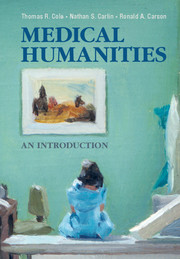Book contents
Part III - Philosophy and Medicine
Part Overview
Summary
Part 3 of this book deals with philosophy. What is philosophy? Philosophy, or philosophia in Greek, literally means love of wisdom. One could say that philosophy is the search for truth and that it seeks to explore ultimate and fundamental questions: How do we know? What is reality? What is good? How should we live? What does it mean to be human?
As an academic discipline, philosophy can be divided into several branches: epistemology (the study of knowledge), logic (the study of reasoning), metaphysics/ontology (the study of reality), ethics (the study of values), and aesthetics (the study of beauty). There are various intellectual traditions of philosophy. For example, there are regionally and historically based traditions such as Greek stoicism, German idealism, American pragmatism, and French existentialism. And within twentieth century philosophy there is a great divide between continental and analytic philosophy. This list is not exhaustive. Indeed, there are many other schools of thought and methodological approaches, such as phenomenological, structuralist, poststructuralist, materialist, feminist, and race-critical. And there are major specialized subfields within philosophy, such as philosophy of religion, philosophy of science, philosophy of language, and philosophy of mind. Philosophy of medicine is another such subfield.
- Type
- Chapter
- Information
- Medical Humanities , pp. 209 - 212Publisher: Cambridge University PressPrint publication year: 2014



